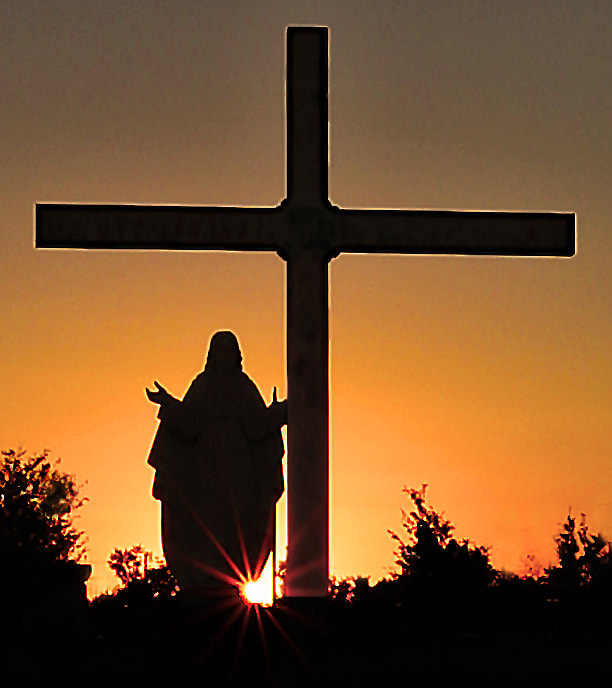|
I was undone this week as I listened to the Brooklyn Tabernacle Choir so beautifully sing "The Song of Moses." The words come from Revelation 15:3-4. "Great and marvelous are Your works, Lord God Almighty! Just and true are Your ways, O King of the saints! Who shall not fear You, O Lord, and glorify Your name? For You alone are holy. For all nations shall come and worship before You. For Your judgments have been manifested." (NKJV) The key question here is, "Who shall not fear You?" The word "fear" as used in the Bible has several meanings. Fear of the Lord contains a mixed feeling of dread and reverence, awe and wonder. The Hebrew word is "Yirah." It is directly connected to trembling. It happens when we encounter something beyond our understanding and should lead us into worship.
A warning is issued to the leaders of nations in Psalm 2. I like the way it is expressed in The Passion Translation. "How dare the nations plan a rebellion. Their foolish plots are futile! Look at how the power brokers of the world rise up to hold their summit as the rulers scheme and confer together against Yahweh and His Anointed King...Listen to me, all you rebel-kings and all you upstart judges of the earth. Learn your lesson while there is still time. Serve and worship the awe-inspiring God. Recognize His greatness and bow before Him, trembling with reverence in His presence." (Verses 1-2, 10-11) By not putting God first in their lives, the rulers of nations, the leaders of churches, and the masses are forfeiting amazing blessings from the Lord. At the forefront is wisdom. "The fear of the Lord is the beginning of wisdom, and knowledge of the Holy One is understanding." (Proverbs 9:10) Job comprehended the ramifications of the fear of the Lord for his life. "The fear of the Lord—that is wisdom, and to shun evil is understanding." (Job 28:28) Scripture is filled with verses describing the benefits of the fear of the Lord. "He whose walk is upright fears the Lord, but he whose ways are devious despises Him." (Proverbs 14:2) It seems that fearing the Lord brings great benefits to families. "He who fears the Lord has a secure fortress, and for his children it will be a refuge." (Proverbs 14:26) Here is one we should remember: "Through love and faithfulness sin is atoned for; through the fear of the Lord a man avoids evil." (Proverbs 16:6) Verses 8 through 11 in Psalm 33 make clear the power of the Lord. "Let the earth fear the Lord; let all the people of the world revere Him. For He spoke, and it came to be; He commanded, and it stood firm. The Lord foils the plans of the nations; He thwarts the purposes of the peoples. But the plans of the Lord stand firm forever, and the purposes of His heart through all generations." When David wrote Psalm 86, he knew the importance of having an undivided heart. "Teach me Your way, O Lord, and I will walk in Your truth; give me an undivided heart, that I may praise You, O Lord my God. With all my heart, I will glorify Your name forever." (Verses 11-12) God gives us undivided hearts when we give Him permission to search us and know our hearts. (Psalm 139) With the fear of the Lord comes a generational promise as written in Psalm 103:17. "But from everlasting to everlasting the Lord's love is with those who fear Him, and His righteousness with their children's children." Psalm 147:11 tells us, "The Lord delights in those who fear Him, who put their hope in His unfailing love." Let's look at what the prophet Isaiah says about fear of the Lord. I believe Isaiah 33:5-6 is one Scripture that encourages and directs us for such a time as this. "The Lord is exalted, for He dwells on high; He will fill Zion with justice and righteousness. He will be a sure foundation for your times, a rich store of salvation and wisdom and knowledge; the fear of the Lord is the key to this treasure." Isaiah 11 describes the Spirit gifts that Jesus carried: "And the Spirit of the LORD will rest on Him--The Spirit of wisdom and of understanding, the Spirit of counsel and of power (might), the Spirit of knowledge and of the fear of the LORD." These verses should be encouraging to us as we are made in the image of God. We must pursue and embrace the fear of the Lord and pray that our leaders will do the same. Why don't you listen to the Brooklyn Tabernacle Choir sing "The Song of Moses"? As you do, ask the Lord how to renew your fear of the Lord and contemplate these words as written by Jeremiah the prophet: "'Should you not fear me?' declares the Lord. 'Should you not tremble in my presence...'" (Jeremiah 5:22) God's still small voice whispered one word into my soul. It was a word I do not use so I questioned what I was hearing. Then I heard it again: "Resolute!" I checked the meaning: "Determined, fixed and firm in purpose, steadfast, faithful." Next, I looked up the word in the Bible concordance. Bingo! It became obvious that God wanted me to write about the journey Jesus took to the Cross. Luke 9:51 in the NIV says, "As the time approached for Him to be taken up to heaven, Jesus resolutely set out for Jerusalem." The Amplified Version puts a little more meat on the bones of this verse: "Now when the time was almost come for Jesus to be received up to heaven, He steadfastly and determinedly set His face to go to Jerusalem." Finally, we have The Passion Translation that fills in any missing pieces for our understanding of what Luke wanted to convey. "Jesus passionately determined to leave for Jerusalem and let nothing distract Him from fulfilling His mission there, for the time for Him to be lifted up was drawing near."
A footnote in The Passion Translation explains, "His exaltation into glory was through the sacrifice of His life on Calvary's cross. Nothing would turn Him aside from being our Sin-Bearer and Redeemer." In my opinion, our author, Luke, seems to have understood the scope of the mission of Jesus more completely than the writers of the other gospels. Luke must have also comprehended that Jesus knew His mission on earth from the very beginning. Imagine Jesus as a young boy reading Holy Scriptures that described His life and death! He would have seen the prophetic nature of the Psalms and remembered their author, David. According to an explanation of Psalm 22 in The Passion Translation, it contains 33 prophecies that were fulfilled when Jesus was on the Cross. The Psalm begins with the cry that He made while on the Cross. "My God, my God, why have you forsaken me? Why so far from saving me, so far from the words of my groaning? O my God, I cry out by day, but You do not answer, by night, and am not silent." (Verses 1-2) This cry would have reminded Jesus that He would be separated from His holy Father because He was bearing our sins. In verses 6-8 we read about the character of the crowd around Him. "But I am a worm and not a man, scorned by men and despised by the people. All who see me mock me; they hurl insults, shaking their heads: 'He trusts in the Lord; let the Lord rescue Him..." The description of the horrors of the Cross continues: "I am poured out like water, and all my bones are out of joint. My heart has turned into wax; it has melted away within me. My strength is dried up like a potsherd, and my tongue sticks to the roof of my mouth; you lay me in the dust of death." (Verses 14-15) "...They have pierced my hands and my feet. I can count all my bones; people stare and gloat over me. They divide my garments among them and cast lots for my clothing." (Verses 16-18) David's lament is quite detailed and shockingly brutal. Yet Psalm 22 ends with words that I think would be encouraging and remind Jesus of the goal for His suffering. "Posterity will serve Him; future generations will be told about the Lord. They will proclaim His righteousness to a people yet unborn—for He has done it." (Verses 30-31) Psalm 110 is another prophetic psalm of David. Look at verses 1-3: "The LORD says to my Lord: 'Sit at my right hand until I make your enemies a footstool for your feet.' The LORD will extend Your mighty scepter from Zion; You will rule in the midst of Your enemies. Your troops will be willing on Your day of battle. Arrayed in holy majesty, from the womb of the dawn, you will receive the dew of Your youth." Jesus did confirm with His Father, while in the Garden of Gethsemane, that the Cross was the only way to accomplish His mission. "Father, if you are willing, take this cup from me; yet not my will, but Yours be done." (Luke 22:42) He was strengthened by an angel sent from heaven, and when He finished praying; Jesus resolutely gave Himself into the hands of those who would nail Him to the Cross. How could He do this? Because of HIs Love! Love gave Him the strength, courage, and determination to accomplish the mission. "...For the joy set before Him He endured the Cross, scorning its shame, and sat down at the right hand of the throne of God. Consider Him who endured such opposition from sinners, so that you will not grow weary and lose heart." (Hebrews 12:2-3) We are the joy set before Him! The enemy of God has always wanted to kill the seed of Messiah, the Jews. Down through the ages, evil people have risen to power who have annihilated large segments of the Jewish population. But God has never taken His eyes off His people and has redemptive plans in place. Part of the Jewish heritage is the remembrance of their sorrows and joys. They will celebrate Purim this week and remember the victory of the Jews over an evil person named Haman. God led an orphaned Jewish girl named Esther into the palace of the king at just the right time. Even though God is never mentioned in the book of Esther, we see His hand at work in the circumstances that arise.
Esther's parents were exiled from Jerusalem to Babylon where they died. She had been adopted by her cousin, Mordecai, a Jewish official living in Susa, one of the capitals of Persia. The call on Esther's life began to manifest when King Xerxes chose her as his queen. Through the help of Mordecai, she became aware of a plot to kill the Jews by the King's second in command, Haman. Esther was called upon to save the lives of her people. As Mordecai told her, "For if you remain silent at this time, relief and deliverance for the Jews will arise from another place, but you and your father's family will perish. And who knows but that you have come to your royal position for such a time as this?" (Esther 4:14) Esther told Mordecai to gather all the Jews in Susa to fast and pray for her for three days. She did likewise with her maids. What Esther was being asked to do was to go before the King on behalf of her people. It was a life and death assignment because it was illegal to go before the king without being summoned. God orchestrated every step that Esther took so that she gained the favor of the King and victory over her enemy. We must understand that Esther was battling with a demonic spirit that overtook Haman and whose compelling desire was to destroy Jews. Let us look more closely at its origin: First, Haman's name means tumult, commotion, and noise. A person with a Haman spirit behaves accordingly. Second, Haman was part of a people group, the Amalekites, who have a long-standing hatred of the Jews. The Bible contains several stories of battles between the Israelites and the Amalekites. The Israelites first encountered the Amalekites, in an unprovoked attack, when they had just left Egypt and were weary and worn out. Moses responded by sending Joshua and his troops to fight them at Rephidim. He and Aaron and Hur watched the battle from a hilltop. Joshua was only successful when Aaron and Hur held up the hands of Moses to the throne of God. Praise God that the Israelites won the battle. (Exodus 17:8-16) In Judges 6 and 7 we see that the Amalekites joined forces with the Midianites to oppress the Israelites. God selected an unlikely candidate from the tribe of Manasseh to overcome the enemy. His name is Gideon which means "One who cuts down." Indeed, after conquering his own fear, he went on to defeat the enemy forces. Wanting to remove the Amalekites from the face of the earth, God instructed King Saul to kill every one of them at the city of Amalek. (1 Samuel 15) He did not follow instructions so that his successor, David, would have to fight them. They raided David's camp at Ziklag, burned everything to the ground, and carried off his wives, children, and flocks, along with those of his men. After strengthening himself in the Lord, David and his men were able to overtake the Amalekites and recover everything. (1 Samuel 30) As we see, the spirit of Haman returned multiple times through the tribe of Amalek. Haman carried anger, hatred, pride, and arrogance which compelled him to destroy the Jews who he saw as a threat. His plot to destroy them began with the casting of lots (Purim in Hebrew). Through casting of the “pur,” a date to destroy the Jews was selected. Thankfully, Haman's plans unraveled when Esther bravely approached the King and followed the divine strategy from God. Haman was hung on the very gallows he had prepared for Mordecai. We see the spirit of Haman manifesting throughout history in men and groups such as Herod, Hitler, and Hamas. The message of Esther is relevant for us today. The enemy of the Jews has also become the enemy of Christians. The spirit of Haman will try to defeat anyone whom God loves and blesses. Consider that we are on the earth for "such a time as this," just like Esther. God delivered the Jews during Purim. As they celebrate what God did for them, we should use this time to battle against the spirit of Haman in our culture that wants to destroy God's kingdom on earth. Let us call out to God for repentance and revival in this world. It is the Kingdom of Heaven that will overcome the kingdoms of this world.  The images coming out of Ukraine are heartbreaking! Russian invaders have come with tanks, bombs, and air support that make it look impossible for the Ukrainians to overcome. A humanitarian crisis has resulted as families scramble to leave their country. It is estimated that over one million people have poured into surrounding countries. Men, ages 18 through 60 must remain to battle the Russian forces. One wonders how these men can hope to take back their homeland.
Those who do not know the Lord surely do not have the same encouragement that Christians do. Believers can read in Scripture the stories of how God helped His people win battles with odds that were impossible in the eyes of the world. After the children of Israel left Egypt, they were trapped between the Red Sea and the entire Egyptian army. Moses told them, "The Lord will fight for you; you need only to be still." (Exodus 14:14) After crossing the Red Sea on dry land they watched as the entire Egyptian army was swept into the sea. "Not one of them survived." (Exodus 14:28) Another outstanding victory for God's people is recorded in 2 Chronicles 20. During the reign of Jehoshaphat, king of Judah, the Moabites and Ammonites joined forces to war against Judah. When Jehoshaphat cried out to the Lord for protection against this vast army, he was instructed to have faith in the prophets and to appoint men to sing praises to the Lord as they marched at the head of their army. Judah's armies watched the opposing armies turn on one another and run. They were completely defeated! The story of Gideon in Judges 6 and 7 is one of my favorites and shows how God fights for His people against overwhelming odds. When we are introduced to Gideon, he and his tribe were so fearful of the Midianites that Gideon was threshing wheat in a winepress. An angel of the Lord visited him with this greeting: "The Lord is with you mighty warrior!" (Judges 6:12) Gideon's response when he was told to save Israel is telling: "How can I save Israel? My clan is the weakest in Manasseh, and I am the least in my family." (Judges 6:15) The answer from the Lord then came: "I will be with you, and you will strike down all the Midianites, leaving none alive." (Judges 6:16) Not only did God keep His promise, but Gideon won the battle with only 300 men! Again, the enemies of Judah turned against one another and were defeated. I picture the Ukrainian army like Gideon's. We must pray that they cry out to the Lord for help. There is a solid Christian community in Ukraine along with a large Jewish population. Perhaps if they join forces in prayer to the God of Abraham, Isaac, and Jacob He will reward their unity. To those who call upon His name He gives wisdom, strength, and overcoming power. Deuteronomy 20 is a recording of God's principles for warfare. "When you go out to battle against your enemies and see horses and chariots and people more numerous than you, do not be afraid of them; for the Lord your God is with you, who brought you up from the land of Egypt. So it shall be, when you are on the verge of battle, that the priest shall approach and speak to the people. And he shall say to them, 'Hear, O Israel: Today you are on the verge of battle with your enemies. Do not let your heart faint, do not be afraid, and do not tremble or be terrified because of them; for the Lord your God is He who goes with you, to fight against your enemies, to save you.'" (Verses 1-4) King David saw the faithfulness of God in many battles and was inspired to write praises and petitions for it in Psalm 144. Here are parts of this Psalm from the New Living Translation. "Praise the Lord, who is my rock. He trains my hands for war and gives my fingers skill for battle. He is my loving ally and my fortress, my tower of safety, my rescuer. He is my shield, and I take refuge in Him...Open the heavens, Lord, and come down...Scatter your enemies...Reach down from heaven and rescue me...Save me! Rescue me from the power of my enemies. Their mouths are full of lies...May there be no enemy breaking through our walls, no going into captivity, no cries of alarm in our town squares. Yes, joyful are those who live like this! Joyful indeed are those whose God is the Lord." Let us declare this Psalm for the Ukrainians and praise God that He is with them in their time of trouble. May Heaven come to earth in this situation. |
Joan E. MathiasCategories
All
Archives
July 2024
|



 RSS Feed
RSS Feed